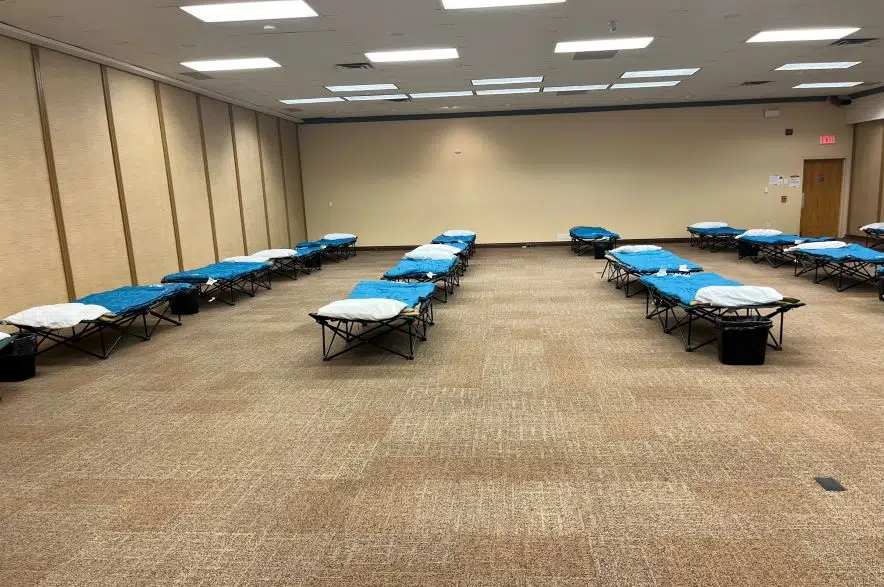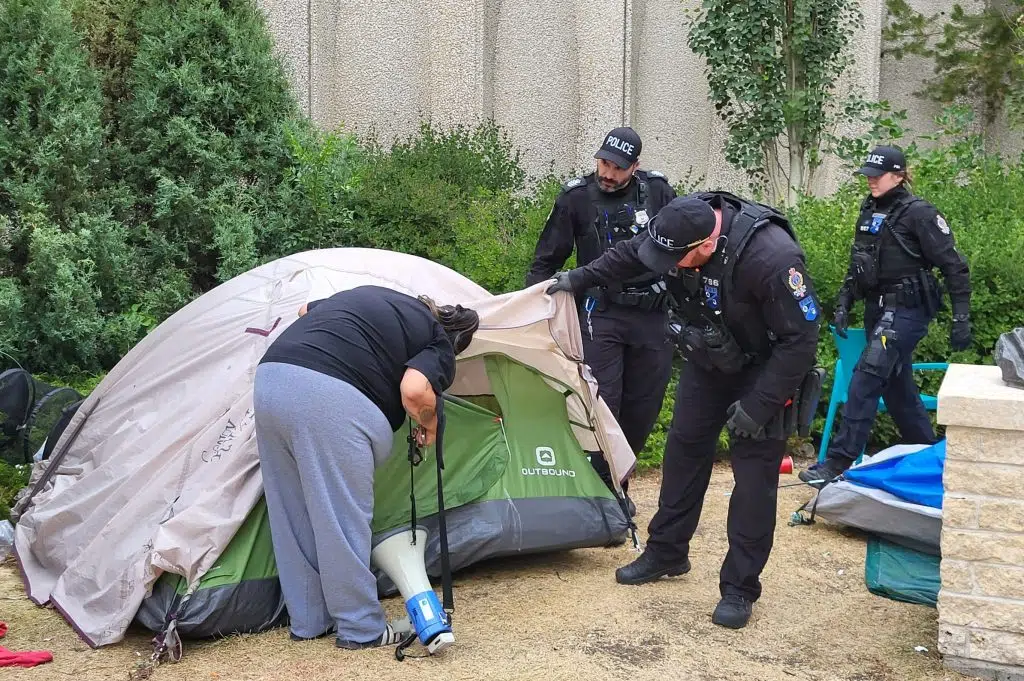The province aims to address “complex needs” and community safety, among other initiatives, with a $40.2 million homelessness plan announced Friday.
Nearly half of the investment, $19M, will go toward community safety efforts, which includes 30 beds in two emergency shelters in Regina and Saskatoon that provide 24 hour medical supervision for people who are intoxicated and violent.
“Public safety is a critical part of addressing the needs of people experiencing homelessness and mental health and addictions issues,” Corrections, Policing and Public Safety Minister Paul Merriman said in a news release.
The Saskatoon Tribal Council announced last month it would start banning problem clients who use drugs and break the rules at its wellness centre.
“We do not have the funding to hire specific individuals to take care of (those with) complex needs. If somebody comes in there and they’re so high and pull out their catheter, we don’t have staff to take care of that. This is a serious situation for our city, and we’ve got to take care of it real quick,” Tribal Chief Mark Arcand said in a September interview.

Saskatoon Tribal Council’s Mark Arcand said the emergency wellness centre is going to be handing out lengthy bans and pushing people away if they abuse drugs and ignore shelter rules. (650 CKOM file photo)
There will also be 155 new supportive housing units in Regina and Saskatoon that provide on-site support and services to those who need stability.
“With an investment of $665,000 this fiscal year and up to $4 million in 2024-25 for operations, we can ensure access to effective mental health and addictions services and programs in the supportive housing units,” Mental Health and Addictions Minister Tim McLeod said in the news release.
Up to 120 permanent shelter spaces will be created in communities across the province with $14.1 million, meaning Saskatchewan will have 500 emergency spaces available this winter.
“Together, and with community partners, we will work to improve the lives of Saskatchewan people who are struggling with addictions and mental health challenges to support their transition to stable and supportive housing,” Social Services Minister Gene Makowsky said in a news release.
The new funding will establish these services over the next two years.
More to come











